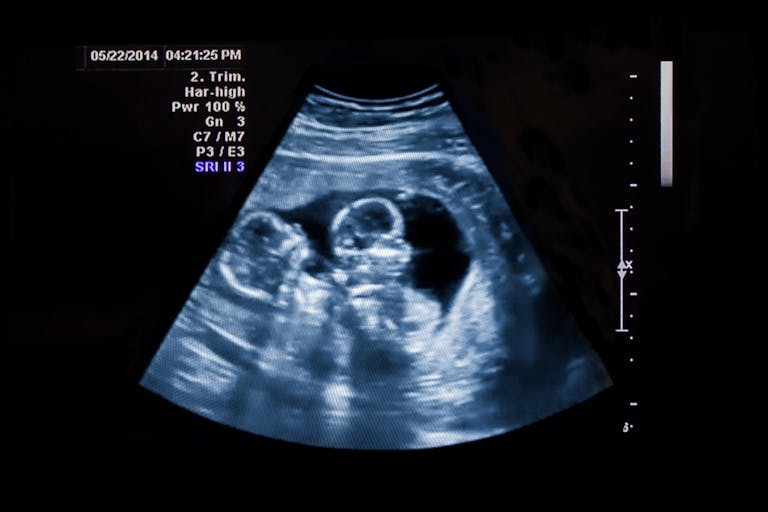
Twin with Down syndrome selectively aborted during IVF pregnancy
Cassy Cooke
·
Conscience Rights: What protections do pro-life health care professionals have?
With states like Maryland, Colorado, Oregon, and California expanding assisted suicide and rushing to enact extreme pro-abortion, and even pro-infanticide, legislation, pro-life health care professionals may be feeling increasingly pressured to participate in such acts. What protections are afforded to them under the law, should they conscientiously refuse to do so?
The United States has a noble tradition of protecting conscience rights. The Americans United for Life website notes:
History, tradition, and jurisprudence affirm that a person cannot be forced to commit an act that is against his or her moral, religious, or conscientious beliefs, and conscience protections have been affirmed by our Founders, the Supreme Court, and Congress.
The Founders recognized freedom of conscience as an unalienable right. Thomas Jefferson wrote, “[O]ur rulers can have authority over such natural rights only as we have submitted to them. The rights of conscience we never submitted, we could not submit. We are answerable for them to our God.”
Similarly, James Madison, considered the Father of the Bill of Rights, understood:
[I]f man cannot be loyal to himself, to his conscience, then a government cannot expect him to be loyal to less compelling obligations, including rules, statutes, judicial orders, and professional duties. If the government demands that he betray his conscience, the government has eliminated the only moral basis for obeying any law.
The Supreme Court has traditionally upheld conscience rights. In 2014, it ruled in Burwell v Hobby Lobby that closely held corporations with sincerely held religious objections were not required to provide certain types of contraception coverage under the Affordable Care Act. This right was again affirmed in Little Sisters of the Poor v. Pennsylvania, a similar case. Cases involving religious objections to the Pledge of Allegiance and conscientious objections to participating in war have been similarly decided in favor of individual conscience.
Federal law provides a variety of legal protections for health care workers who object to participating in certain acts on conscience grounds. The Church Amendments, passed just weeks after the Supreme Court decided Roe v Wade, were enacted to protect freedom of conscience with regard to abortion and sterilization. They forbid forcing an individual’s participation in either practice and prohibit discrimination in employment based on an individual’s conscientious refusal to participate.
According to Americans United for Life, the Coates-Snow Amendment of 1995 similarly prohibits the federal government and any state or local government receiving federal financial assistance from discriminating against any healthcare entity, which includes individual physicians and students, for refusing to provide or participate in training for abortions, do abortions, or refer for trainings or for abortion procedures.
Article continues below
Dear Reader,
In 2026, Live Action is heading straight where the battle is fiercest: college campuses.
We have a bold initiative to establish 100 Live Action campus chapters within the next year, and your partnership will make it a success!
Your support today will help train and equip young leaders, bring Live Action’s educational content into academic environments, host on-campus events and debates, and empower students to challenge the pro-abortion status quo with truth and compassion.
Invest in pro-life grassroots outreach and cultural formation with your TRIPLED year-end gift!
Section 245 of the Public Health Service Act and the Weldon Amendment of 2005 provide similar protections.
The Affordable Care Act also has conscience protections built in. Section 1303(b)(4) states: “No qualified health plan offered through an Exchange may discriminate against any individual health care provider or health care facility because of its unwillingness to provide, pay for, provide coverage of, or refer for abortions.” Section 1553 broadens this protection to participation in killing generally, including euthanasia and assisted suicide.
However, these protections only apply to recipients of federal funding, and are subject to the whim of bureaucrats. According to Americans United for Life, “an individual cannot file a lawsuit under these laws on their own behalf, and instead must file a complaint for HHS to investigate and pursue.” Consequently, when any particular administration happens to be unfriendly toward conscience protections, including and especially the current administration, there is no guarantee of justice for individuals, since HHS can simply choose not to act.
In September of 2021, HHS under Xavier Becerra issued “Guidance on Nondiscrimination Protections under the Church Amendments,” repositioning the emphasis thereof to highlight protections for those who do participate in abortion. Becerra has also been accused of acting in violation of federal conscience protections by senators and members of Congress.
Furthermore, it is expected that the Biden administration will issue new HHS rule changes this month that will disallow religious objections to participation in surgical abortion, fertility treatments, contraception, abortifacients, sterilizations, and a variety of transgender-related procedures. Americans United for Life notes, “The Biden Administration has made it clear that it will not defend longstanding federal conscience protections — unless you’re an abortionist in Texas who wants to violate the Heartbeat Act.”
For these reasons, state conscience protections are needed. However, only two states – Illinois and Mississippi – provide blanket protection for all health care providers who refuse on a conscientious basis to participate in any health care procedure or service. Forty-five states provide protection only to certain providers, or only with regard to certain specific procedures (usually abortion). Three states provide no protection whatsoever: New Hampshire, New Mexico, and Vermont.
If you feel your conscience rights have been violated, Freedom2Care has excellent resources for health care providers, including commentary on relevant legislation, advocacy tips, and personal stories. Legal counsel is also available from organizations such as Life Legal Defense Foundation, Alliance Defending Freedom, and Liberty Counsel. Those covered by federal provisions may file a complaint with HHS here.
“Like” Live Action News on Facebook for more pro-life news and commentary!
Live Action News is pro-life news and commentary from a pro-life perspective.
Contact editor@liveaction.org for questions, corrections, or if you are seeking permission to reprint any Live Action News content.
Guest Articles: To submit a guest article to Live Action News, email editor@liveaction.org with an attached Word document of 800-1000 words. Please also attach any photos relevant to your submission if applicable. If your submission is accepted for publication, you will be notified within three weeks. Guest articles are not compensated (see our Open License Agreement). Thank you for your interest in Live Action News!

Cassy Cooke
·
Analysis
Cassy Cooke
·
Analysis
Cassy Cooke
·
Analysis
Bridget Sielicki
·
Analysis
Cassy Cooke
·
Analysis
Cassy Cooke
·
International
Bettina di Fiore
·
Human Rights
Bettina di Fiore
·
Politics
Bettina di Fiore
·
Human Interest
Bettina di Fiore
·
Activism
Bettina di Fiore
·